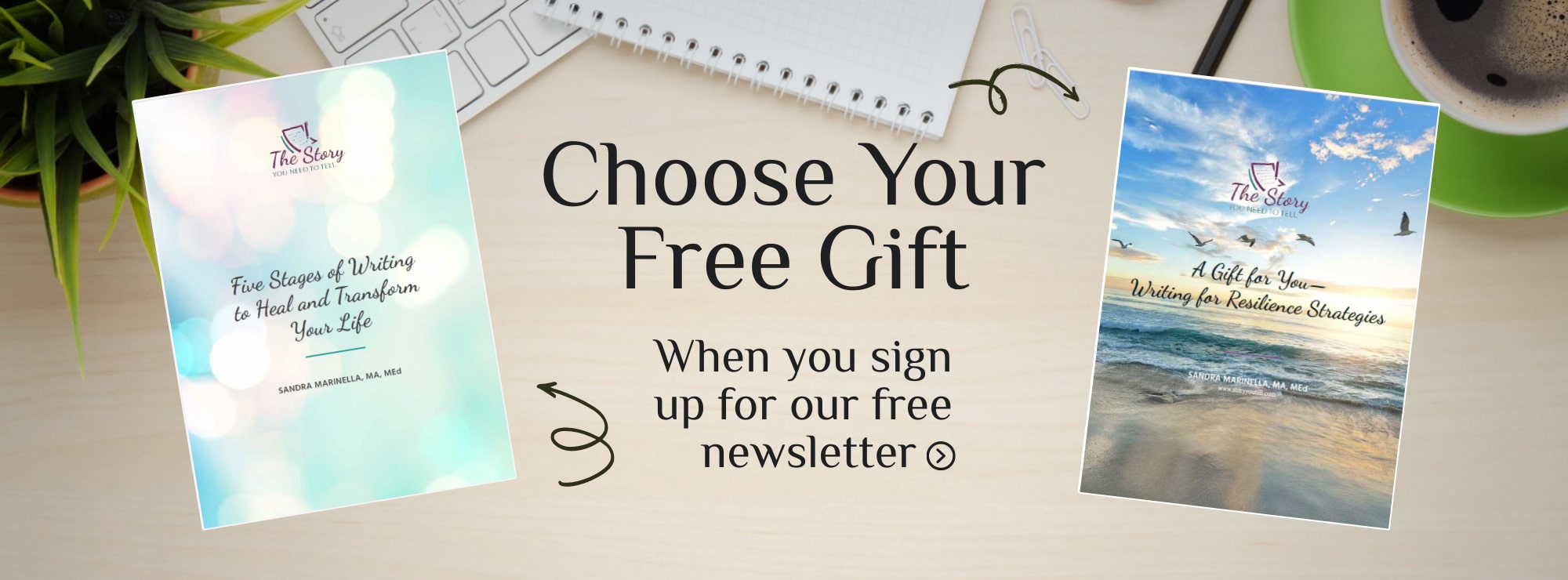The Circle of Gratitude
My mother always said, “Gratitude begets gratitude.” I wondered what she meant.
I began writing daily gratitudes back in 2019 while my mom’s health was failing, and I hated facing the loss of her beautiful self. She had always listened like no one else. She had always understood. I knew her loss would be irreplaceable in my life. It was. But the gratitudes were a gift that helped me cope.
Gratitudes lifted me up each morning. They taught me to notice tiny, beautiful things–the cardinal who stopped to sing to me at the top of the juniper tree, the sunlight that surprised me on my hike by painting a kaleidoscope of orange and yellow dancing across the red rocks. With gratitude I learned to stretch and breathe deeply as I practiced my simple yoga. With gratitude I learned to light candles as a ritual to honor the people and writings that walk the path into my heart.
Of course, I began sharing my gratitude writing practice with my students. I learned when we share gratitudes we increase the positive feelings that come of it. Last week I wrote this gratitude in my journal.
From Sandra–I am grateful for my writers. Teaching them is my passion. My love of teaching centers on the fact that I am always the student. Learning from my writers. Inspired by my students.
That same morning, I began sifting through gratitudes I had collected from students. I read and reread Martha Bonnie’s gratitudes. I am a bit star-struck with her words. They are heartfelt, meaningful, and artful. I always want to stick them on a billboard for others to see or convince the New York Times that these words should grace their pages. While humble with her work, she allowed me to show you just these few. Perhaps the beautiful words that weave themselves through our class are the real teachers. Words that teach us to find and hold our gratitude.
From Martha–I am grateful for–finding a monarch butterfly while hiking today. Monarchs symbolize transformation and are also seen as spirit guides. I’ve always loved butterflies–so has my daughter– we’re both drawn to them. This one was stuck on the trail, so I picked it up to keep it from being trampled. It crawled into my hands, up my wrist and delicately up my arm. It unfolded its paper-thin wings, pulled them back together and sat for a moment. Then it opened its wings and flew away. I feel as if I dreamed the moment.
Martha and I have worked together off and on in writing groups for three years. She faced these years, like all of us, with the fear of COVID threaded into her days, but she also faced a difficult accident and a long-distance move to Arizona. While speaking does not come easily, her words filled with resilience flow onto the page.
From Martha–I am grateful for my courage because this recovery is grueling, and I have never once considered giving up on myself or my family or my fight.
Last week when we chatted on Zoom, Martha read a new poem to me. I cried. The words were that good. While she is not ready to release her poem yet, she gave me a greater gratitude.
From Martha–I am grateful for my writing class, the writing I’ve been doing through it, and the community of writers I am part of because of the class. I’m so grateful for all of the inspiration and the perspective I’ve gained just from being part of this group of writers. I’m grateful for my own courage and the courage of all of the other women, when we choose to share a piece of ourselves through our writing. I’m even more grateful for the kindness in the feedback of others after the sharing.
My students, like Martha, have taught me that in finding our words together we can create a space where we write and share and grow. We can even make it a circle of gratitude.
In this month of Thanksgiving I wanted to share this with you. My gratitudes have taught me to hold a light up to the blessings in my life. They have made my life brighter. May you find your gratitude. May it surround you.

